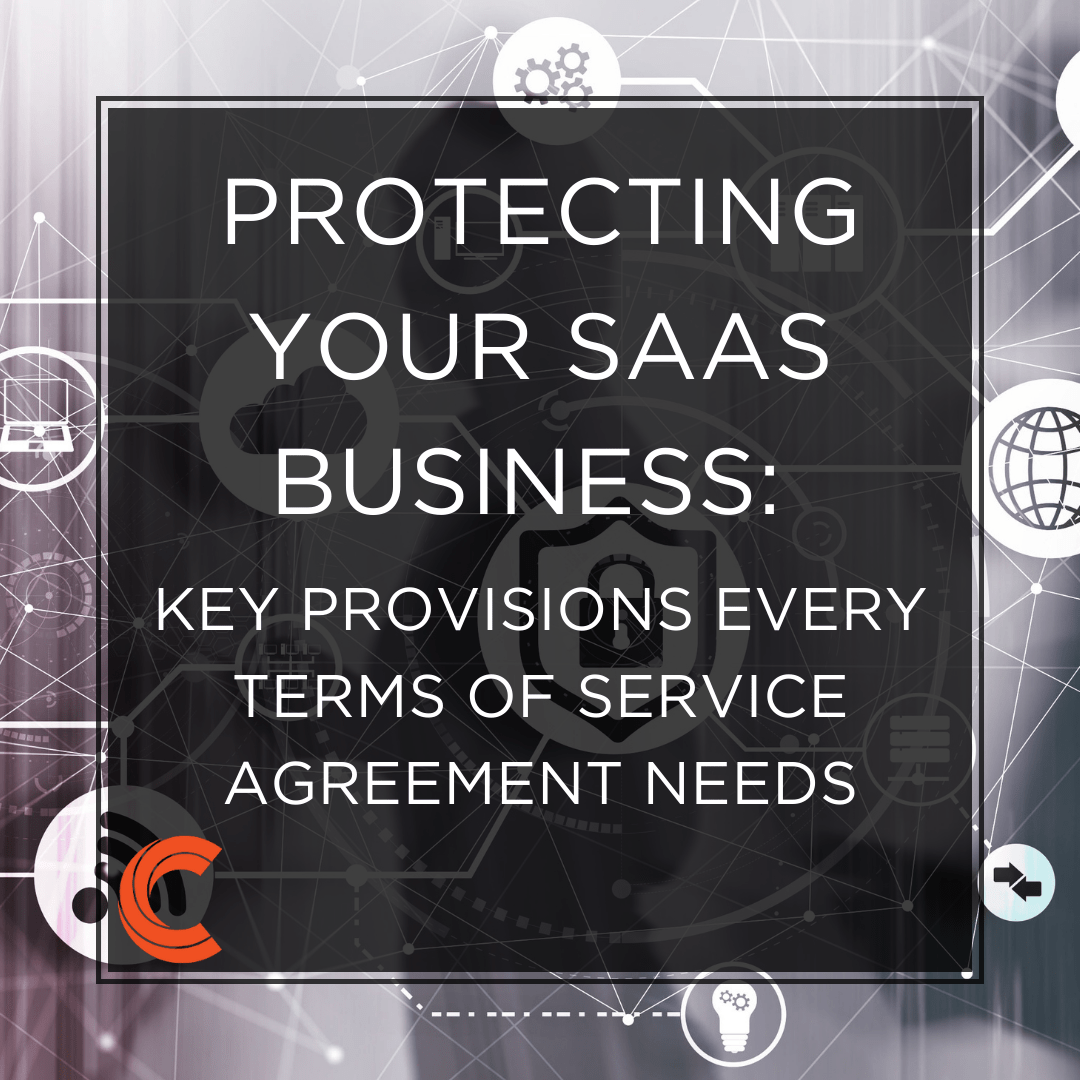In the fast-evolving SaaS industry, a solid Terms of Service (ToS) Agreement is more than just a legal formality. It’s the backbone of your business, ensuring both you and your customers are protected. This post delves into the critical provisions every SaaS ToS Agreement should include to safeguard your interests.
Intellectual Property Rights in a ToS Agreement
Your software’s intellectual property (IP) is the lifeblood of your SaaS business. Clearly define what constitutes your IP and how customers can use it. The ToS should explicitly state that all rights to the software and its underlying code remain with your company. Any misuse, reverse engineering, or unauthorized reproduction of your software should be expressly prohibited. This not only protects your business from potential infringement but also ensures that your software’s value is preserved.
User Responsibilities
To minimize risks, your ToS should outline the responsibilities of users. This includes specifying acceptable use, prohibiting illegal activities, and requiring users to maintain the confidentiality of their login credentials. By setting clear expectations, you reduce the likelihood of misuse or legal disputes. It’s essential to include a clause that allows you to terminate accounts that violate these terms, ensuring you can act swiftly to protect your business.
Data Security and Privacy
With increasing concerns around data privacy, your ToS must address how user data is collected, stored, and protected. This section should comply with relevant data protection laws, such as GDPR or CCPA, and detail the measures your company takes to secure personal information. Be transparent about data usage and any third parties that may have access to it. Clearly outline the user’s rights concerning their data, including the right to access, correct, or delete their information. This not only builds trust but also ensures compliance with legal requirements.
Payment Terms for a ToS Agreement
A well-defined payment structure is essential for maintaining cash flow and avoiding disputes. Your ToS should specify the pricing model, billing cycles, and accepted payment methods. It’s also crucial to include provisions for late payments, including any applicable fees or penalties. Additionally, clarify the process for subscription cancellations and refunds. This transparency helps prevent misunderstandings and ensures that your business is compensated fairly for its services.
Limitation of Liability
To protect your company from excessive liability, include a limitation of liability clause. This provision should cap the amount of damages a user can claim, usually to the amount paid for the service. It’s also wise to disclaim warranties to the fullest extent permitted by law. This means clearly stating that your software is provided “as is” and that you do not guarantee it will be error-free or meet specific performance criteria. By limiting your liability, you reduce the financial risks associated with potential legal claims.
Indemnification Clause in Your ToS Agreement
An indemnification clause shifts the risk of certain legal claims from your company to the user. It requires the user to cover any damages, losses, or costs your company incurs as a result of their actions or use of the software. This is particularly important if your SaaS product allows for user-generated content or third-party integrations. By including an indemnification clause, you protect your business from bearing the costs of defending against claims that arise from user activities.
Termination and Suspension
Your ToS should clearly outline the circumstances under which you can terminate or suspend a user’s access to your service. This could include non-payment, breach of terms, or other disruptive behaviors. Additionally, provide a process for users to terminate their subscriptions, including any notice requirements. This clarity helps manage user expectations and ensures that you have the flexibility to protect your business when necessary.
Governing Law and Dispute Resolution
Specify the jurisdiction and governing law that will apply to your ToS Agreement. This is especially important for a SaaS business with an international user base. By choosing a favorable jurisdiction, you can ensure that any legal disputes are resolved in a location that is convenient and beneficial to your company. Additionally, consider including a dispute resolution process, such as mediation or arbitration, to handle conflicts outside of court. This can save time and legal costs while providing a structured approach to resolving disagreements.
The Role of AI in Contract Reviews
Incorporating AI-driven tools in the review process of your ToS Agreement can greatly enhance its effectiveness. AI can identify potential gaps, inconsistencies, or legal risks that might be overlooked in a manual review. This ensures that your contract is not only comprehensive but also legally sound. By leveraging AI, you can maintain the integrity of your agreements and stay ahead in a competitive market.
Conclusion: Trust Carbon Law Group for Your SaaS Agreements
A well-drafted Terms of Service Agreement is vital for protecting your SaaS business. From intellectual property rights to data security and dispute resolution, each provision plays a crucial role in safeguarding your interests. By incorporating AI into your contract review process, you can ensure that your agreements are robust and enforceable.
At Carbon Law Group, we specialize in providing AI-enhanced legal services to help you navigate the complexities of SaaS agreements. Our team is dedicated to ensuring your contracts are not only comprehensive but also tailored to the unique needs of your business. Contact us today to learn how we can assist in securing your SaaS company’s future.





